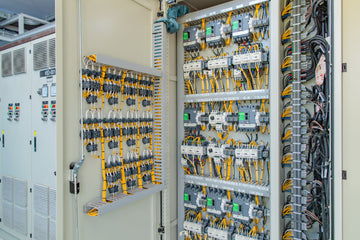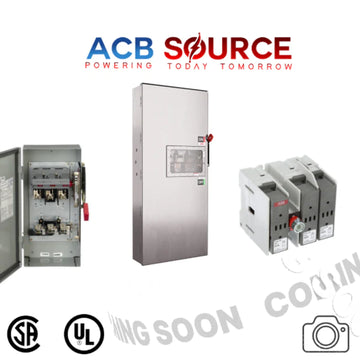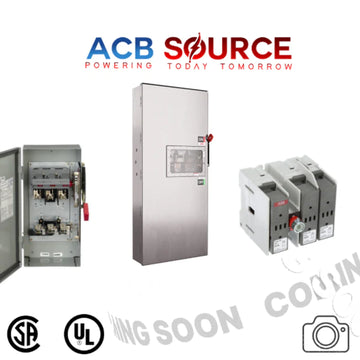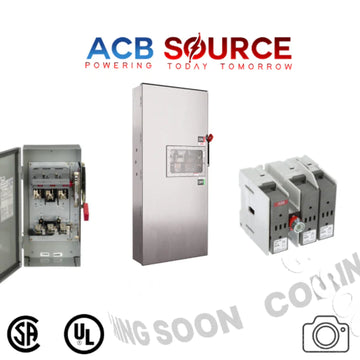In the dynamic landscape of industrial automation, the choice of a control panel is a pivotal decision that directly impacts efficiency, safety, and overall system performance. While off-the-shelf control panels are readily available, businesses are increasingly turning to custom control panels for their tailored solutions. In this article, we explore the reasons why opting for a custom control panel is a strategic decision, shedding light on the training insights that come with this choice.
Understanding the Significance of Control Panels
Before delving into the advantages of custom control panels, it's essential to grasp the central role these devices play in industrial settings.
1. Centralized Control:
Control panels serve as the nerve center of industrial systems, providing a centralized platform for monitoring and managing various processes.
2. Automation and Precision:
With automation at the core, control panels enable precise control over machinery, ensuring optimal performance and adherence to predefined parameters.
3. Safety and Emergency Response:
Custom control panels can be designed to incorporate advanced safety features, including emergency shutdowns and alarms, enhancing overall workplace safety.
4. Scalability and Flexibility:
Custom control panels are inherently scalable, allowing businesses to adapt and expand their systems seamlessly as operational needs evolve.
Advantages of Opting for a Custom Control Panel
1. Tailored to Specific Requirements:
One of the primary advantages of choosing a custom control panel is the ability to tailor it to the specific requirements of the industrial process. Off-the-shelf solutions may offer generic features, but a custom panel ensures that every component aligns with the unique needs of the system.
2. Optimized User Interface:
Custom panels can be designed with an intuitive user interface, streamlining the monitoring and control process. This optimization contributes to user-friendly interactions and reduces the learning curve for operators.
3. Enhanced System Efficiency:
The customization of control panels allows for the integration of the latest technologies and advancements. This leads to enhanced system efficiency, improved response times, and the ability to implement energy-saving measures.
4. Seamless Integration with Existing Systems:
For businesses with existing automation systems, a custom control panel can be seamlessly integrated. This ensures compatibility with legacy equipment and facilitates a smooth transition without the need for extensive modifications.
5. Training Customization:
A critical aspect often overlooked is the impact on training when opting for a custom control panel. Training programs can be specifically tailored to the features and functionalities of the custom panel, optimizing the learning process for operators and maintenance personnel.
Training Insights: Why It Matters
1. Focused Training Modules:
Custom control panels enable the creation of focused training modules that address the specific features and operations of the system. This targeted approach enhances the effectiveness of training sessions, ensuring that participants gain a deep understanding of the custom panel's functionalities.
2. Reduced Learning Curve:
With training programs aligned to the custom control panel's design, operators experience a reduced learning curve. Familiarity with the system's layout and functionalities allows for quicker adaptation and confidence in operating the equipment.
3. Efficient Troubleshooting:
Tailored training equips maintenance personnel with the skills to efficiently troubleshoot issues related to the custom control panel. This not only minimizes downtime but also contributes to proactive maintenance practices, extending the lifespan of the equipment.
4. Adaptability to System Upgrades:
As systems evolve and undergo upgrades, having a trained workforce familiar with the custom control panel ensures a smooth transition. Operators and maintenance teams can adapt to new features and functionalities without the need for extensive retraining.
Implementing a Custom Control Panel Training Program
1. Collaboration with Manufacturers:
Work closely with the custom control panel manufacturer to develop a comprehensive training program. Manufacturers often have insights into the intricacies of the system and can tailor training modules to address specific nuances.
2. Hands-On Training Sessions:
Incorporate hands-on training sessions as part of the program. Practical experience enhances comprehension and retention, allowing participants to apply theoretical knowledge to real-world scenarios.
3. Simulation Exercises:
Develop simulation exercises that mimic real-world scenarios. These exercises allow operators and maintenance personnel to practice troubleshooting and emergency response in a controlled environment.
4. Continuous Learning Opportunities:
Implement a continuous learning approach by providing access to resources such as online modules, documentation, and periodic refresher courses. This ensures that the workforce stays updated on the custom control panel's features and any subsequent upgrades.







